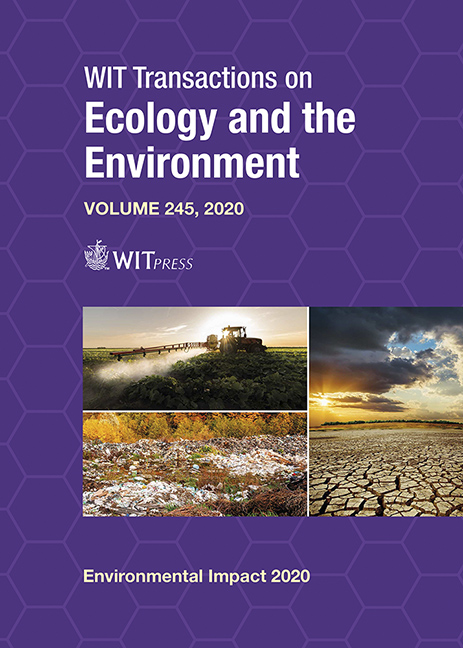WATER MINING AND EXTRACTIVISM OF THE SALAR DE ATACAMA, CHILE
Price
Free (open access)
Transaction
Volume
245
Pages
11
Page Range
189 - 199
Published
2020
Paper DOI
10.2495/EID200181
Copyright
WIT Press
Author(s)
INGRID GARCÉS, GABRIEL ALVAREZ
Abstract
The sustainability of the lithium industry in Chile is being threatened by the series of environmental and social impacts occurring in the Salar de Atacama. This study is based on a review of technical and environmental reports, including the inspection processes carried out to date at the Salar de Atacama, the main lithium brine deposit worldwide. Demand for clean technologies has increased global lithium production, pressuring the production system to increase the quota of brine extraction to satisfy the greater demand for this resource. As a result of the extraction process in the salt flat, millions of tons of water are removed from the system in an arid region, the biota is affected, and natural conditions change in this fragile and dynamic ecosystem. The impact on the salt flat not only translates into loss of water, but also in the disappearance of vulnerable species that only exist in these places, the loss of the cultural heritage of indigenous peoples, the losses of millions of years of evolution of adaptation processes of species, including the extremophilic organisms. From the economic point of view, although both companies are committed to compensating the damage to the Atacameñas communities, one with 3.5% of the value of sales and the other with a contribution of US$15 million annually, it is not comparable with the deterioration of the Salar and the loss of cultural heritage. In conclusion, it is verified that the lithium mining industry causes strong environmental and social impacts, so we cannot speak of lithium as a synonym for “green economics.” Therefore, can the lithium industry be considered of strategic relevance to the development of zero carbon technologies?
Keywords
water mining, extraction of lithium, Salar de Atacama, socio-environmental impacts, natural brines, Andean biodiversity, salt flat, Andean evaporites





